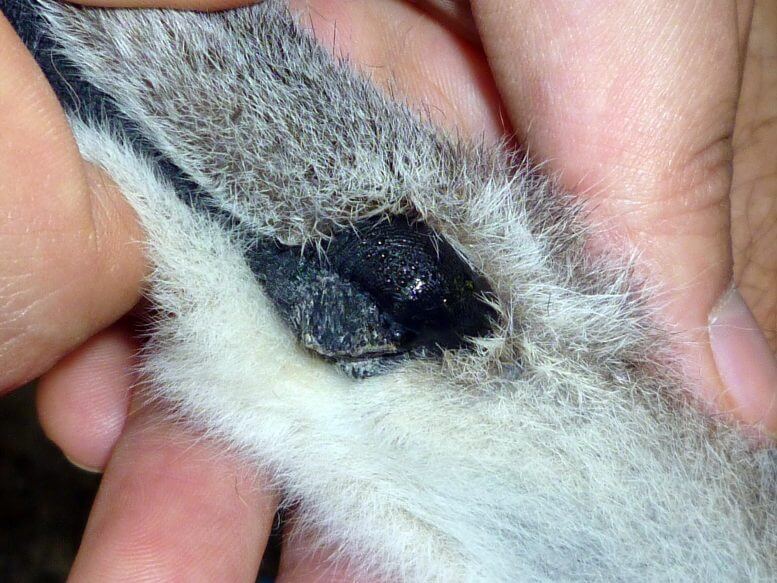In a study by a team of researchers from the University of Tokyo published in the journal "Current Biology", three different chemical compounds were identified as being responsible for the fruity body odor that the male lemur emits during the annual breeding season, in order to become more attractive and attract potential mates, just like humans who use perfumes

For the first time, a pheromone was identified: a volatile chemical released to influence social or sexual behavior among mammals belonging to the primate group. Unlike humans who sometimes use perfume as a means of attracting the opposite sex, lemurs have scent glands on their wrists and shoulders, so they don't need external help to spread the scent.
"The stinking flirt" of the male lemur
Lemurs' scent glands are designed to mark social status, territory and reproductive status. Through behavioral observations, the researchers discovered that lemurs use these scent glands to attract the attention of females and establish sexual communication with them through dispersal. A perfume with a masculine scent. The male lemurs use a behavioral technique called "stinky flirting": a behavioral ritual designed entirely to attract the attention of the female lemur.
Prof. Kazushiga Torah from the University of Tokyo, Explains: "During the annual breeding season, male lemurs rub the scent glands on their wrists. They wave their tails, then move towards the females to be noticed. This behavior is called 'stinky flirting'".
The research team observed the reaction of the female lemurs, and noticed that they smelled the fruity scent that the males emitted for extended periods of time during the breeding season, when the females are sexually aroused. The researchers isolated the fruity odor components of four male lemurs, and let the female lemurs smell it only. The results showed that the females sniffed the fruity odor for twice as long, compared to the bitter secretions produced outside the breeding season by the male lemur.
Prof. Kazushiga Tohara from the University of Tokyo, Explains the findings: "The females sniff the fruity relaxation for a few seconds longer than average, and occasionally even lick it. Although it sounds like a very short time, it is enough to arouse curiosity in the male." More information in the scientific article.
The animal kingdom communicates through smell

When the chemical compounds that are responsible for spreading the smell were examined, both during the breeding season and outside of it, three compounds were found that are responsible for spreading the smells: aldehyde-dodecanal, 12-methyltridecal and tetradecal. The compounds were found in the odors distributed in both seasons, but in significantly higher concentrations in the odors distributed during the breeding season.
In order to examine the effect on female lemurs, an attempt was made to introduce the compounds to them separately. The findings showed that only the mixture of the three compounds had a significant ability to keep the female's attention.
Although these three compounds have previously been found to be involved in the recognition process in sheep, as well as in several species of insects, this is actually the first time that the 12-methyltridecanal compound has been identified in a primate species.
It seems that the entire animal kingdom communicates through rituals that include smells and chemical compounds, where there is a common denominator, some of which we know, and some of which we will discover in the future.
The world belongs to the young
It seems that similar to the world of humans, it is also the same among animals: during the study it was found that young and sexually mature teachers naturally produce more of the compound that smells of the fruity perfume than the older men. The reason for this probably lies in the level of testosterone production. Not only in the men, but also in the women's world differences were found. The researchers noticed that young and mature females who are at the peak of their reproductive capacity are much more impressed than female lemurs who have passed their reproductive capacity who are not impressed at all by the fruity scents emitted by the males.
These findings indicate that the three chemical compounds associated with odor are indeed pheromones, whose purpose is to influence social behavior. However, more information is required to definitively determine whether the smell emitted by the male lemur directly affects sexual behavior, because the behavioral changes that occurred among the lemurs after the act of sniffing were not examined. The next step is to examine whether the smell emitted by the male lemurs actually affects the chances of mating.
The article is courtesy promoted content Lemon duty offering perfumes of all the popular perfume brands for purchase online at special prices.
